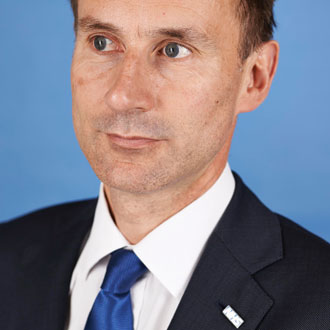1. Create a seven-day GP service
His boss may want seven-day GP access for ‘everyone’ by 2020, but newly reappointed health secretary Jeremy Hunt may struggle to deliver it.
The £400m funding promised by the Prime Minister last year to set up local schemes is non-recurrent, and CCGs will have to find the money to keep them going in the longer term. And some are already cancelling seven-day access; leaders at NHS Canterbury and Coastal CCG have scrapped their weekend GP opening scheme after it failed to help A&E departments meet the four-hour target.
2. Find 5,000 more GPs
Just as pressing – and vital for seven-day access – is recruiting the promised 5,000 more GPs. Mr Hunt has acknowledged he will need to make general practice more attractive to achieve this, saying there would be a ‘new deal’ for GPs, including finding out ‘why GPs have so much burnout’.
Details of the new deal are due this month, and could make or break the Government’s ambitions for the NHS.
3. Implement the NHS Five Year Forward View
Mr Hunt has promised an extra £8bn a year by 2020 to fund new models of care, including plans for GPs to expand to provide more secondary, community and social care services.
But NHS England chief executive Simon Stevens also called for an unprecedented £22bn of ‘efficiency savings’ from the health service. Many have questioned whether this is achievable.
4. Sort out urgent care
The target to see 95% of A&E patients within four hours was missed every week from November to March this winter.
NHS England sought radical solutions, often involving longer GP opening, and even asked CCGs to use money meant for next winter. Mr Hunt needs to get to grips with this issue.
5. Devolve NHS budgets
The health secretary has been thrown a slight curveball by chancellor George Osborne’s promise to give all English cities the chance to control their own health budgets.
Manchester was the first and Mr Hunt will have to work out how other cities can follow – without attracting accusations of yet another ‘top-down’ reorganisation of the health service.
Pulse October survey
Take our July 2025 survey to potentially win £1.000 worth of tokens













